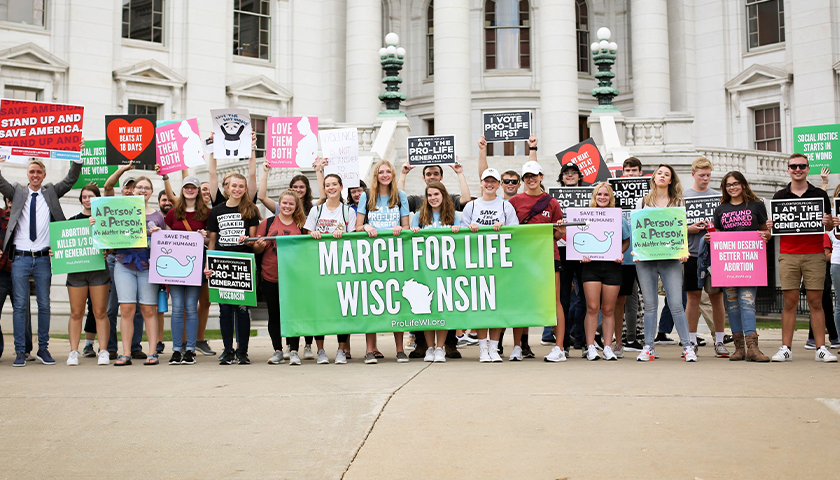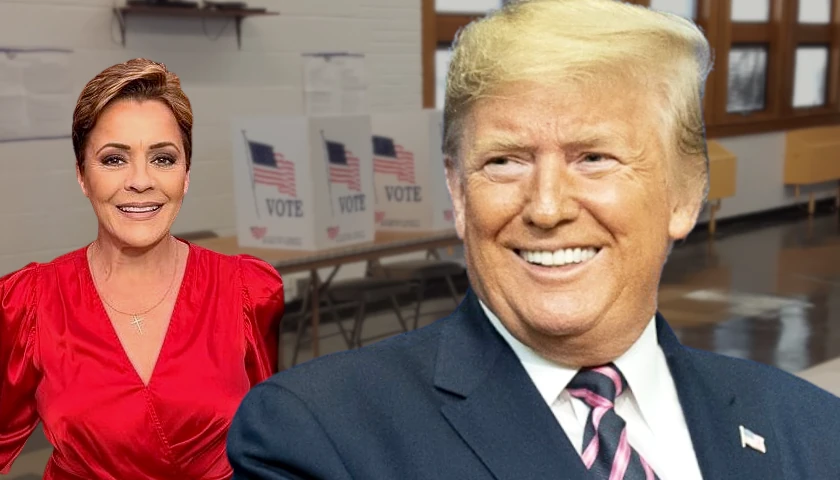Three protests all with different perspectives on abortion clashed at the Wisconsin State Capitol on Saturday. The pro-abortion marches appeared to have been fueled by recent decisions in Texas, banning abortions after the detection of a fetal heartbeat.
One group of abortion advocates marched, yelling that “abortion is a human right, not just for the cis(gender) and white.” There was also a second, larger group of abortion protesters who were part of the “Bans Off Our Bodies” movement.
Wisconsin’s Lieutenant Governor Mandela Barnes took part in the marches, saying that he is “proud to stand up for reproductive rights in La Crosse.” Barnes said, “Every person has the right and freedom to make this very personal choice. We must make Roe v. Wade law of the land and protect the right to choose.”
The two groups were marching for abortion rights, while a pro-life rally march was organized by Pro Life Wisconsin in response. The pro-life march was reportedly the first March for Life to ever be held in Wisconsin.
A great turnout for the #MarchForLifeWisconsin today! #ProLife pic.twitter.com/Q63bjtVOa4
— Pro-Life Wisconsin (@ProLifeWI) October 3, 2021
The communications director for Pro Life Wisconsin, Anna Demeuse, said, “Our hope is to really rally around the idea that every life is beautiful and human dignity is precious and should be preserved, both in our culture and in our laws. So, we hope to end abortion here in Wisconsin and nationwide.”
The Bans Off Our Bodies marches took place in over 600 cities around the nation, assisted by the national Women’s March organization. According to the Wisconsin State Journal, the second pro-abortion protest was created in a response to the Bans Off Our Bodies “exclusion of trans, BIPOC, nonbinary, and disabled folks.”
“When white women are given a platform, they don’t include the rest of us,” said Tarah Stengler, one of the organizers of the alternative march who initially was going to be part of the safety team for the Bans Off Our Bodies march. “A general sense of exclusion of trans, BIPOC (Black, Indigenous and People of Color), nonbinary and disabled folks was felt.”
According to a press release from the University of Wisconsin-Madison’s BIPOC Coalition, they withdrew their support of the Bans Off Our Bodies march the day before it took place, saying that “A movement that centers the voices of cis, middle-class white women and their struggles to access adequate healthcare and safe abortion is not a movement for reproductive justice.”
A slight amount of conflict ensued between the two pro-abortion marches, with the organizer of the Bans Off Our Bodies march telling the other participants to “go home.”
Ashley Cheung, who is a member of the BIPOC Coalition, shared the alternative abortion march was “fueled by a desire to lift up the voices of those who have been oppressed in the mainstream feminist movement.”
As reported by the Wisconsin State Journal, abortion debates are becoming a focal point for Wisconsin’s upcoming gubernatorial. “Abortion has emerged as a major issue in Wisconsin’s 2022 gubernatorial election after former Lt. Gov. Rebecca Kleefisch, a Republican who recently announced her bid for governor, said she would sign a bill that bans abortions once doctors can detect a fetal heartbeat.”
– – –
Hayley Tschetter is a reporter with The Minnesota Sun and The Wisconsin Daily Star | Star News Network. Follow Hayley on Twitter or like her Facebook page. Send news tips to [email protected].
Photo “Wisconsin March for Life” by Pro-Life Wisconsin.





